So, Sir Francis Bacon, in addition to all that
empiricism, philosophy, judicial and legal considerations, histories of
assorted monarchs, natural history and everything else, also found the time in
his busy schedule to write the finest plays and poetry ever composed in the
English language. Because, and I kid you not, writing the finest plays and
poetry in the English language was beneath him. It would have mucked up his
political ambitions if it ever got out he was writing plays and poems and all
that arty bejesus because that would have called his elevated credibility into
question. Hence, he cooked up this cunning plan of attributing his Finely
Wrought Plays And Poems Ever Written to some geezer from near Birmingham, as
you do.
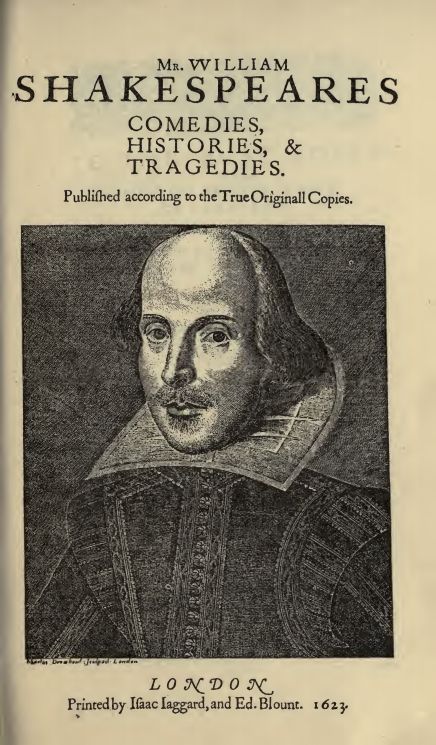 |
| William Shakespeare's First Folio - or is it? |
That’ll fool everybody, and he just had to get his works on the
stage, darlings, at any cost, even if it meant that posterity would never know
what a sacrifice he’d made. God forbid that it ever got out that a nobleman of
his high stature was soiling his paws by concocting wee conceits for the
entertainment of the rude mechanicals. But Bacon was way, way too smart for
that. Because he used all these Finely Wrought Plays And Poems Ever Written (©)
to let it be known (to the initiated) that he was in fact the illegitimate
child of Queen Elizabeth I, the Virgin Queen, and thus the heir to the throne
of England. And how, I hear you ask, did he manage this? Well, obviously, by a
hidden cipher within the text, you numpty. This is where we begin to shuffle
towards the really meaty stuff.
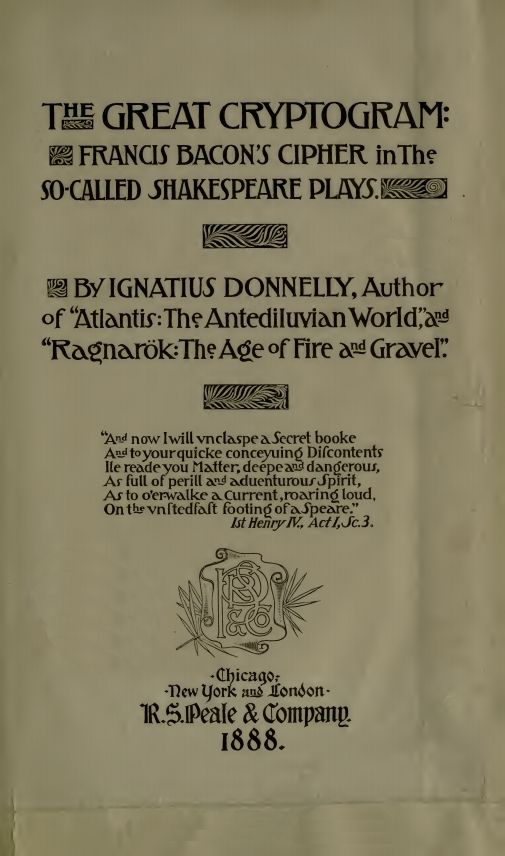 |
| Ignatius Donnelly - The Great Cryptogram - 1888 |
Let’s dolly back to that letter from Theta in Notes
and Queries from 1853. Why was it that Bacon and Shakespeare didn’t mention
each other? To the Baconians the answer is simple, they were one and the same
person and it wouldn’t do to draw too much attention to that fact. Bacon had
written the plays himself, and had overseen the printing of them, how else
could the hidden codes have been placed? I’ll give you the full-on crackers
later, but don’t go there unless you can handle the sort of textual analysis
that makes Kabbalists seem rational or any other cliché that seems apt here.
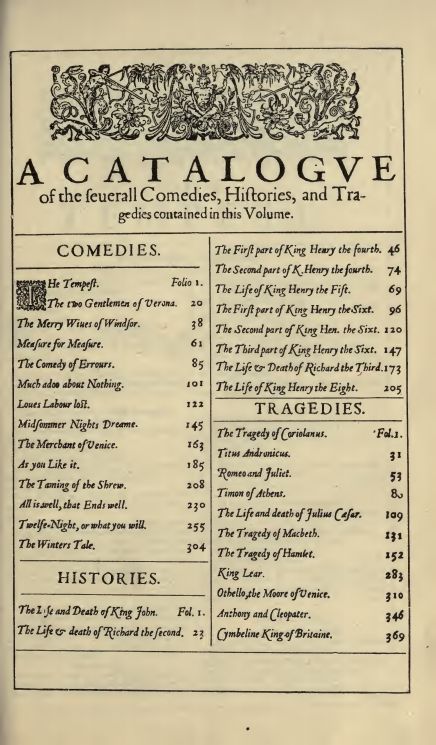 |
| Catalogue of the Plays in the First Folio - 1623 |
Naturally, the conspiracy deepens, because barmy knows no bounds. There weren’t
enough hours in the day for Bacon to have written the plays and the poems and
all that other stuff he spent his time doing – being Attorney General or Lord
Chancellor and such – so what did he do? Obviously, he gets a few of his mates in
to give him a hand with the heavy lifting. You know, Sir Walter Raleigh (when
he wasn’t busy circumnavigating the globe), the 6th Earl of Derby,
the 17th Earl of Oxford, the 5th Earl of Rutland and just
about any other Elizabethan aristocrat that knew which end of a quill to hold.
Or other playwrights who weren’t busy wrighting plays of their own – Kit
Marlowe, Ben Jonson, Colley Cibber, Thomas Nashe, Robert Greene – indeed,
almost any Elizabethan playwroughter who wasn’t called William Shakespeare.
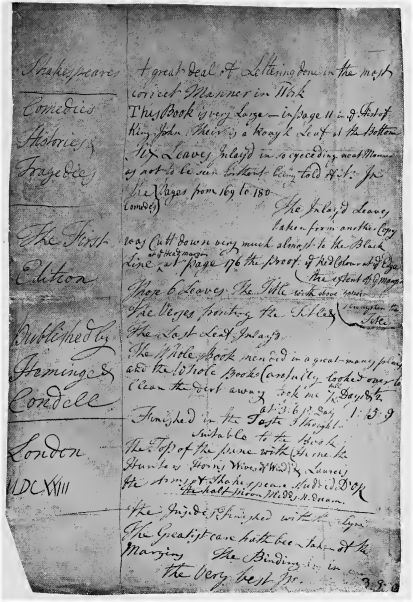 |
| Roger Payne's bill for Binding the First Folio by William Shakespeare - allegedly |
If
you count them all up, there are just over seventy candidates for the post of
the ‘real’ William Shakespeare but of them all, Sir Francis Bacon remains in
pole position. Delia Salter Bacon’s article of 1856 questioned Shakespeare’s
authorship of the plays but she didn’t, at that time, name any other names, but
she was swiftly followed into print by William Henry Smith (yes, that W
H Smith, of the newsagent shops fame), who actually named Bacon – Smith had
written a letter to Lord Ellesmere which was circulated initially as a
privately printed sixteen-page pamphlet during late 1856, before being
reprinted in Littel’s Living Age in November 1856.
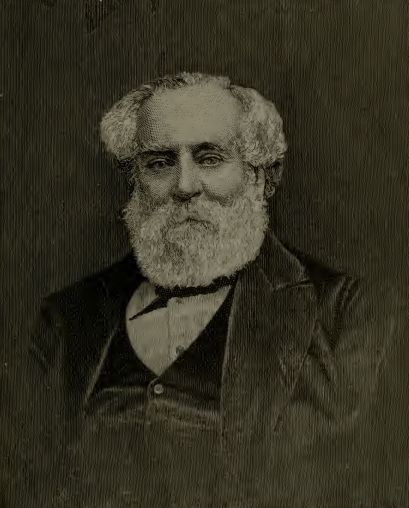 |
| W H Smith |
This was the cause of
a bit of a spat when Nathaniel Hawthorne accused Smith of plagiarising his
countrywoman’s work without having had the good grace to give her a mention.
Smith refuted Hawthorne’s slight by claiming to have no knowledge of the good
lady’s work and if he had, he would certainly have acknowledged it, so
Hawthorne apologised and Smith accepted that apology and everything was
tickety-boo between them thereafter.
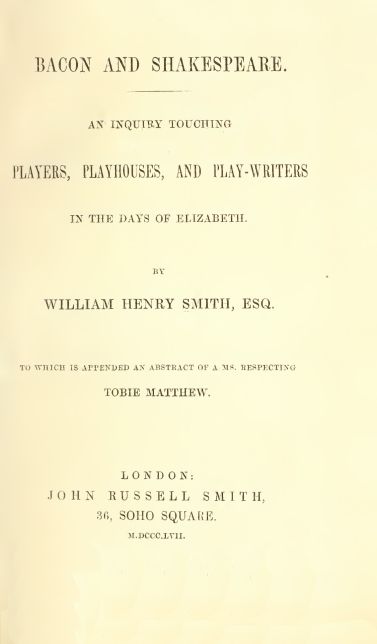 |
| W H Smith - Bacon and Shakespeare - 1857 |
In 1857, both W H Smith and D S Bacon
published books about Bacon’s authorship of Shakespeare, and a convention soon
developed that Shakespeare was used to refer to the man from
Stratford-upon-Avon and Shake-speare was used to refer to the man who
had written the plays. There were, of course, writers who rushed to the defence
of the Swan of Avon; one of the first was George Henry Townsend’s William
Shakespeare not an imposter (1857), which takes Smith’s arguments to task,
in particular.
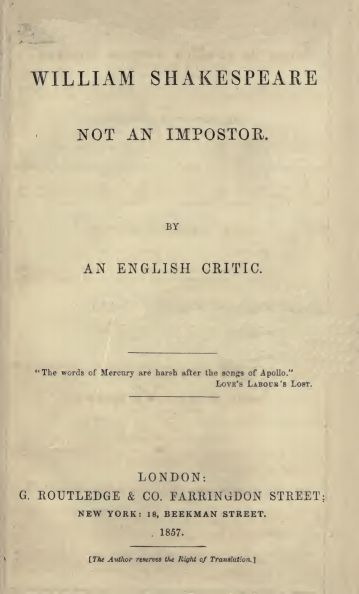 |
| George Henry Townsend - William Shakespeare not an Imposter - 1857 |
If anything comes over in this work, it’s how personally
Townsend takes Smith’s effrontery and how he responds in the sort of language
you’d expect from a wounded Victorian gentleman – with phrases like ‘rambling
sentences’, ‘cheap literature’ ‘pestilent vapour’ or ‘this fungus’ bandied
around with evident relish. Splendid stuff. And so the claims and counterclaims
were made, points raised and refuted, coincidences noted and differences found
and if all these books have anything in common, other than their subject, it is
the very size of the things.
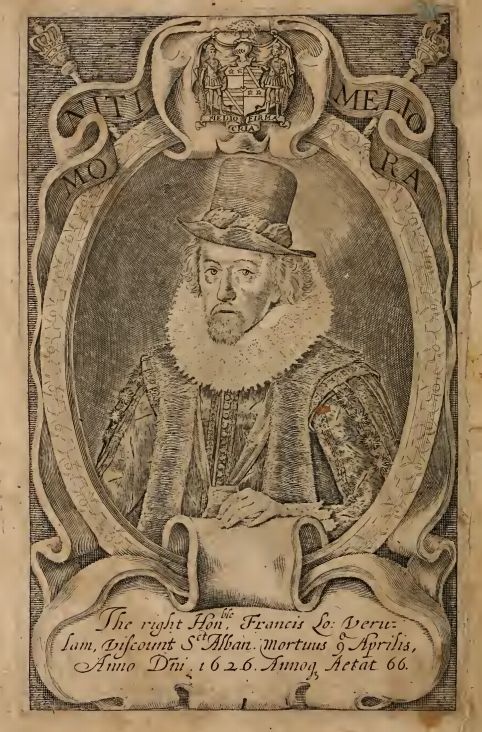 |
| Sir Francis Bacon |
It’s almost as if there was a tacit background
wager going on as to who could write the thickest book. 'Weighty tome' doesn’t
begin to describe some of these literary doorsteps – Delia Bacon started it
with a mere 582 pages, to be beaten by a nose by William Shakespeare a
Literary Biography by Karl Elze (587 pages), Nathaniel Holmes’s The
Authorship of Shakespeare ups the stakes to 696 pages but the prize pot
must be handed to Ignatius Donnelly and his The Great Cryptogram (1888)
which contains a length-and-a-half winning 998 pages. Crickey.
No comments:
Post a Comment